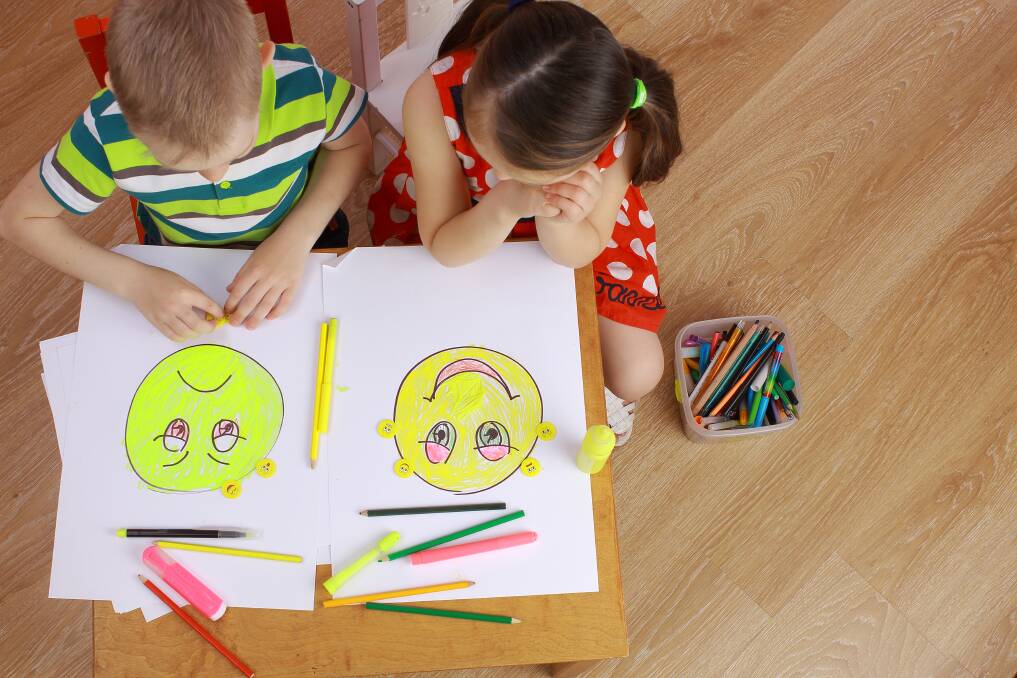Learn the skills for life: The importance of social emotional learning

This is branded content.
The face of education, and the advice given to educators about how best to teach, is always evolving. In the past, pedagogical practice has often been informed by the work of Russian academic Vygotsky, who came up with the theory behind the "Zone of Proximal Development". Still, as Smagorinsky reminds us, his work is the most quoted, least read work in the educational sphere. What is clear is that more than academic achievement is required to equip individual learners for success.
Employers, educators, and parents alike are recognising the vital role of social-emotional learning (SEL) in preparing students for life beyond the classroom. SEL equips individuals with the essential skills to navigate the complexities of relationships, manage emotions effectively, and make responsible decisions.
This article explores the fundamentals of SEL, its importance in the Australian education system, and the long-lasting benefits it offers to individuals and society as a whole. If this sounds like something that interests you, or you clicked on the reading about Vygotsky, you might be cut out to work in the field of education. It can be as easy as clicking on a link to explore the options around undertaking a Master of Education online.
Understanding social-emotional learning
Social-emotional learning encompasses the process through which learners acquire and apply the knowledge, attitudes, and skills necessary to understand and regulate emotions, set and achieve realistic, manageable goals, and develop empathy for others.
It doesn't end there - SEL tackles complex issues that any young person must navigate, like creating and maintaining positive relationships, making responsible decisions, and learning how to take ownership of consequences if the decisions they made weren't responsible.
SEL goes beyond academic knowledge and has a strong focus on how the learner fits into society, especially outside of the carefully scaffolded social environment that a school can become to a student. Essentially, this kind of learning revolved around five key competencies:
- Self-awareness: Understanding one's emotions, thoughts, and values, and how they influence behaviour.
- Self-management: Regulating emotions, managing stress, and setting and achieving goals effectively.
- Social awareness: Showing empathy and understanding others' perspectives, cultures, and backgrounds.
- Relationship skills: Establishing and maintaining healthy and rewarding relationships with diverse individuals and groups.
- Responsible decision-making: Making ethical, constructive choices about personal and social behaviour.
How can SEL be implemented in Australian schools?
The great news here is that SEL is already well-recognised as the direction that curriculum creators need to take to ensure that learners leave school ready to engage with everything the world has to offer them. With this recognition, various educational institutions are already in the process of incorporating SEL programs into their curricula.
Second Step, developed by the Committee for Children, is an evidence-based program that provides age-appropriate lessons and activities to promote social and emotional competence amongst students, intending to reduce problem behaviours and increase the academic success of the learners involved. Tweaking of curricula could involve incorporating programs similar to this one to promote meaningful change in the way students are taught to socialise with each other and engage with the world around them.
What's So Important About SEL?
The world is constantly changing, and with the introduction of artificial intelligence technologies, it seems that the rate of change will continue to accelerate. Now, more than ever, it's vital to teach the future generation about the importance of face-to-face interaction with their peers and instil a deep sense of respect and empathy for the people and communities around them. It's easier than ever to access hateful content online, including misogynistic and sexist content creators, or even something as simple as cyberbullying between students. By nurturing emotional intelligence and establishing a sense of belonging amongst learners, SEL initiatives can contribute to making healthier and more supportive communities.
SEL's Long-Term Benefits
The good news about SEL doesn't stop once the students graduate. Individuals who possess strong SEL skills are better equipped to handle the challenges and uncertainties of life, build meaningful relationships, and pursue careers that fulfil them. The learning environment improves in the long-term, too: SEL programs can help foster a positive, supportive school culture characterised by empathy, respect, and collaboration between staff and students, laying the foundation for a more inclusive community. The core of SEL is in social cohesion, and this is a benefit that continues to affect everyone involved, whether they "buy in" to the program or not.
In conclusion, social-emotional learning is not just an educational trend, but a fundamental aspect of preparing individuals for success in a world that isn't going to stop changing. By fostering self-awareness, emotional regulation, and interpersonal skills, SEL equips students with the tools they need to thrive academically, socially, and professionally, and these are skills that will always be in demand.
In Australia, the integration of SEL into school curricula reflects a commitment to holistic education and the well-being of students. By prioritising SEL, educators, policymakers, and parents are investing in the future of the nation, creating a generation of resilient, empathetic, and socially responsible individuals.


